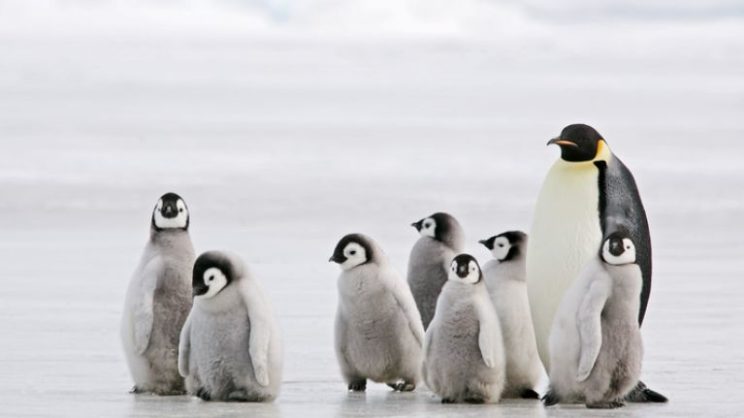
“A BBC documentary crew in Antarctica abandoned their ‘no interference’ rule to save a group of baby penguins.” The baby penguins “got trapped inside an icy ravine” and would have otherwise died. They are now OK.
This should be the rule, not the exception. In the past, the crew filmed the death of a baby elephant even though it was in their power to help. Defending such a policy because it is supposedly “natural,” or “nature taking its course,” or some B.S. Disney platitude about the “circle of life” makes us complicit in the harm when it is in within our power to intervene. Might does not make right, but it does create a duty to assist.
Professor Oscar Horta argues that that “we should try to intervene in nature to reduce the enormous amount of harm [animals] suffer” regardless of whether or not humans caused it.
Making the claim that “natural” is better is to accept not only as inevitable, but as normatively preferable, the suffering often inherent in nature, despite our capacity to mitigate it. Indeed, many animals in the wild die prematurely and die violently. Tragically, “the overwhelming number of nonhuman animals [in the wild] die shortly after they come into existence. They starve or are eaten alive, which means their suffering vastly outweighs their happiness.” In fact, “The overwhelming majority of the animals of the overwhelming majority of species appear to have significant suffering but little (or no) happiness in their lives.”
So contrary to assertions, “natural” is not better; it is objectively and demonstrably worse. There is no compelling reason why individual animal suffering born of disease or ailments or “getting trapped inside an icy ravine” that humans have the ability to cure is preferable to the diminished suffering, extended lifespan, or opportunity to pursue happiness that an animal is afforded when humans provide veterinary and other types of care.
That avoidable suffering would be preferable, more “natural,” and therefore somehow more noble or acceptable than the lessening of pain and suffering afforded to sick, injured, orphaned, elderly, or trapped animals when humans provide them veterinary, nursing, and palliative care, or in the case of crews filming animals for documentaries, life-saving intervention, is a view that cannot be reconciled with our own experiences and preferences as living beings.
There is no cause for this view other than anthropocentric bias: an attitude that considers the avoidable suffering of animals or diminished ability to pursue fulfillment as somehow less egregious than that of humans in comparable circumstances, and an attitude that does not recognize our duty and responsibility to diminish life’s hardships for other Earthlings when it is within our power to do so.
To quote my favorite penguin in the Penguins movie, “I reject nature”:
Have a comment? Join the discussion by clicking here.